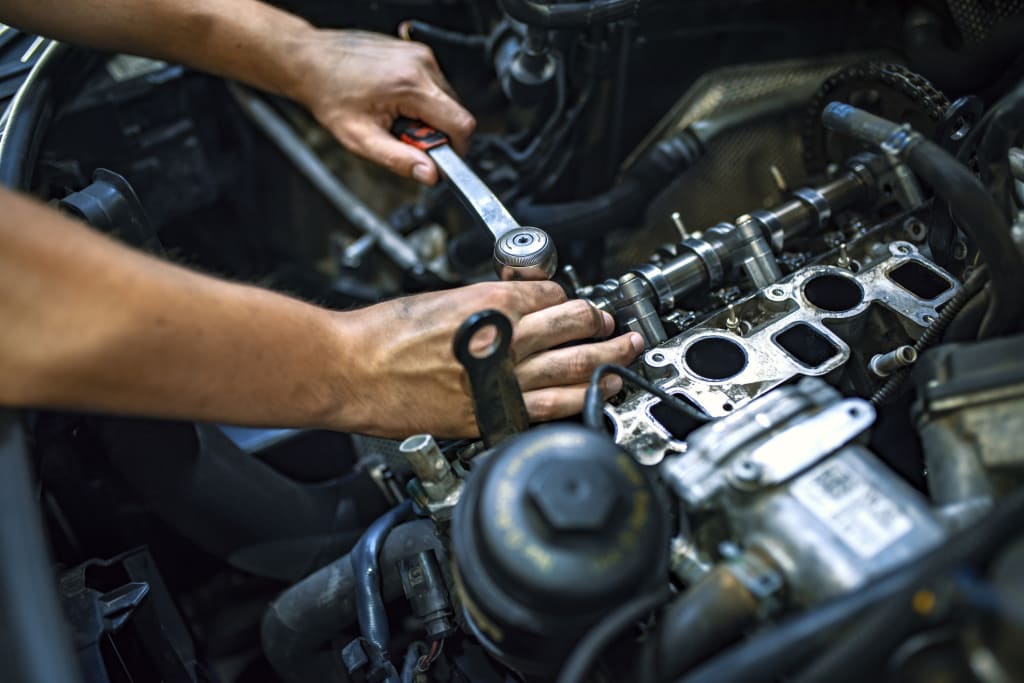My Car Is Making a Whining Noise
14/09/2023

Nobody likes the idea of having to fork out lumps of cash for repairs but in some cases if you’re hearing a whining, ticking, squeaking, knocking or grinding sound then you may unfortunately have to. In this guide we’ll look at some of the possible causes for why your car is making noises and how you can fix the problem.
Why is my car making a whining sound?
There are a few things that may be causing your car to make a whining sound. We won’t be able to cover them all in this article but here are the most common reasons why your car may be making some whining noises.
- A worn out power steering pump: A power steering pump helps you turn the steering wheel of your car. When this gets worn out over time it can cause a whining noise when you turn the wheel.
- Low power steering fluid: If the fluid level for your power steering pump is low then this can be a reason why the pump is making a whining sound.
- A worn out alternator: A car’s alternator charges the battery and powers the electrical system. If it’s worn it can make a whining noise which can be especially noticeable when driving at high speeds.
- Worn alternator: The alternator charges the battery and powers the electrical system. If it’s worn, it can make a whining noise, especially when the car is running at high speeds.
- A Worn belt: The belt drives the car’s power steering pump, the alternator, and other various components. If the belt is worn enough, it can start to make a whining noise, especially when turning the steering the wheel.
- Worn pulley bearings: Pully bearings can make a whining noise when they are worn. The pulleys are the wheels that the belt rides on.
- Transmission issues: The transmission is responsible for transferring power from the engine to the wheels. If there are any issues with the transmission of your car then it can produce a whining noise, especially when you accelerate.
Why you need to see a mechanic to assess the issue
If you here a whining noise it is best to visit your local garage to confirm the issue. Not fixing the issue soon enough and continuing to drive can lead to further damage and potentially costly repairs further down the line. When diagnosing the problem you should consider when the noise first appeared. You should also take note of the if the noise changes when you apply pressure to the breaks or gas pedal.
How much does it cost to repair these issues?
The cost of repairing the above mentioned issues will really depend on the make and model of your car as well as the repair shop you decide to use. Cost of labour and services can vary from region to region. According to WhoCanFixMyCar.com, the most expensive region for repairs in the UK is Cornwall whilst Derbyshire.
Average cost of repairs
| Part | Average price range |
| Power steering pump | £180 to £500 |
| Alternator | £150 to £300 |
| Alternator belt | £50 to £100 |
| Pulley bearings | £100 to £200 |
| Transmission | £500 to £3,000 |
How to avoid these issues
Regular check ups to your local garage can help prevent issues from developing into costly repairs further down the line. Like with tooth decay or an infection it is important to act early to prevent bigger problems arising that will be more expensive and time consuming to fix. By maintaining good practices for your car you can help prevent issues arising. Basic checks include regularly checking your oil, rotate your tires, check fluids regularly as well as putting your car through excessing stresses such as revving, hard breaking and so on.
Car insurance policies do not typically cover the costs of repairs and replacements caused by simple use or wear and tear. However you can insure yourself against breakdowns, which will cover the cost of getting your car off the road and moved to a garage along with costs of repairs for getting your car back on the road.
Compare car insurance and breakdown quotes today with CompareNI and start saving on your premiums
* *51% of consumers could save £518.14 on their Car Insurance. The saving was calculated by comparing the cheapest price found with the average of the next four cheapest prices quoted by insurance providers on Seopa Ltd’s insurance comparison website. This is based on representative cost savings from June 2025 data. The savings you could achieve are dependent on your individual circumstances and how you selected your current insurance supplier.